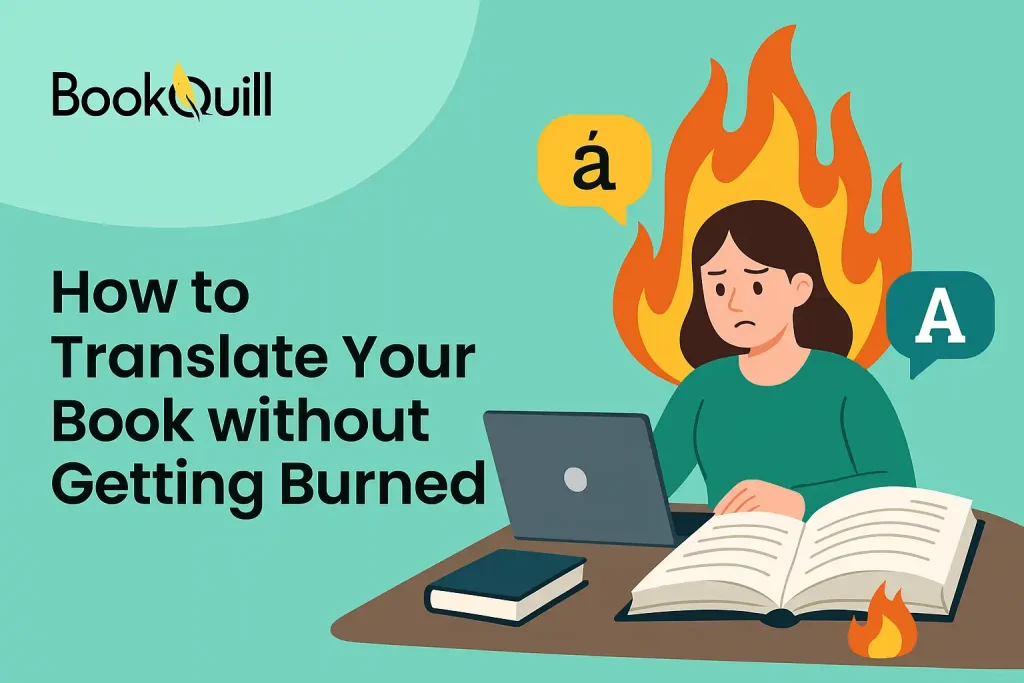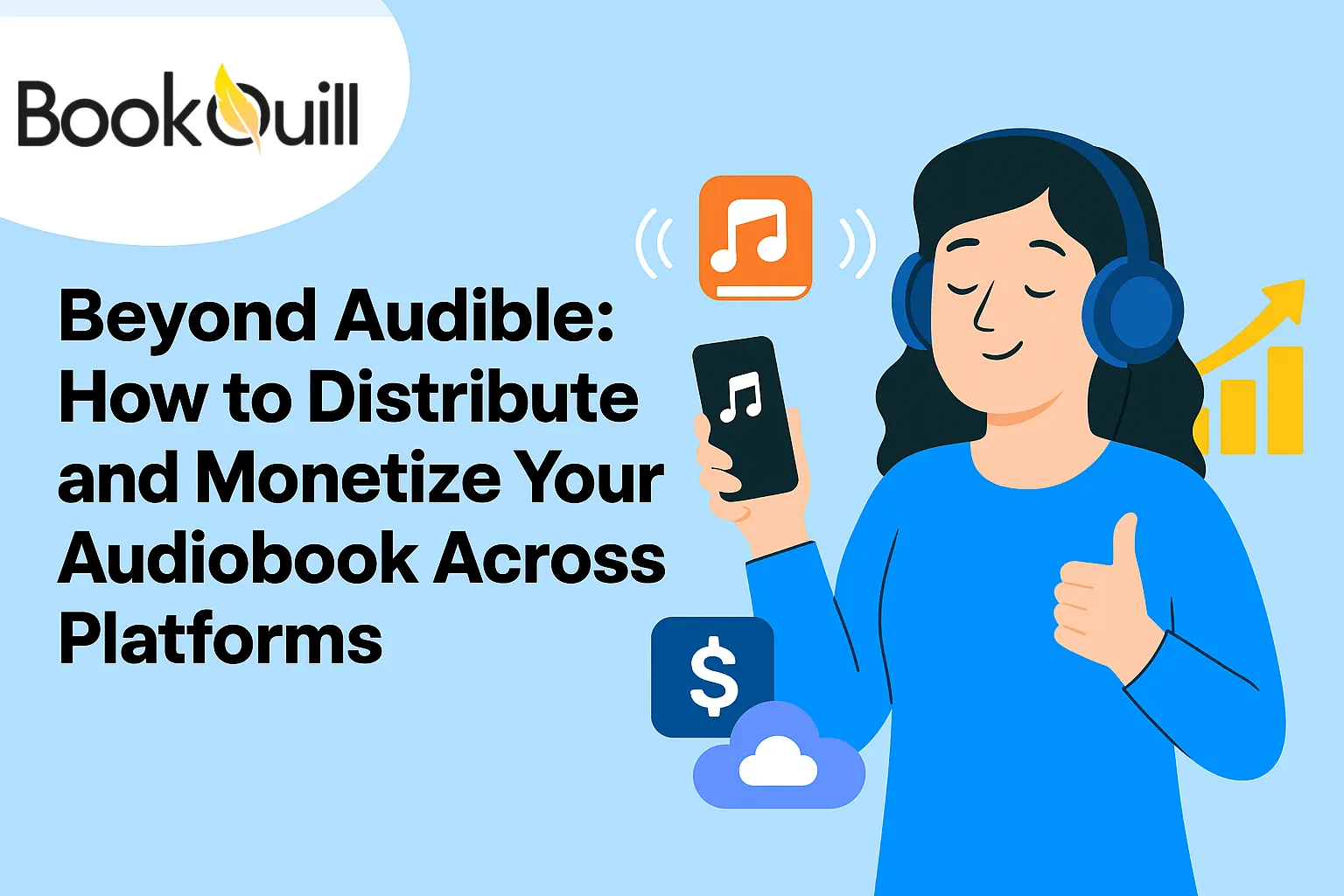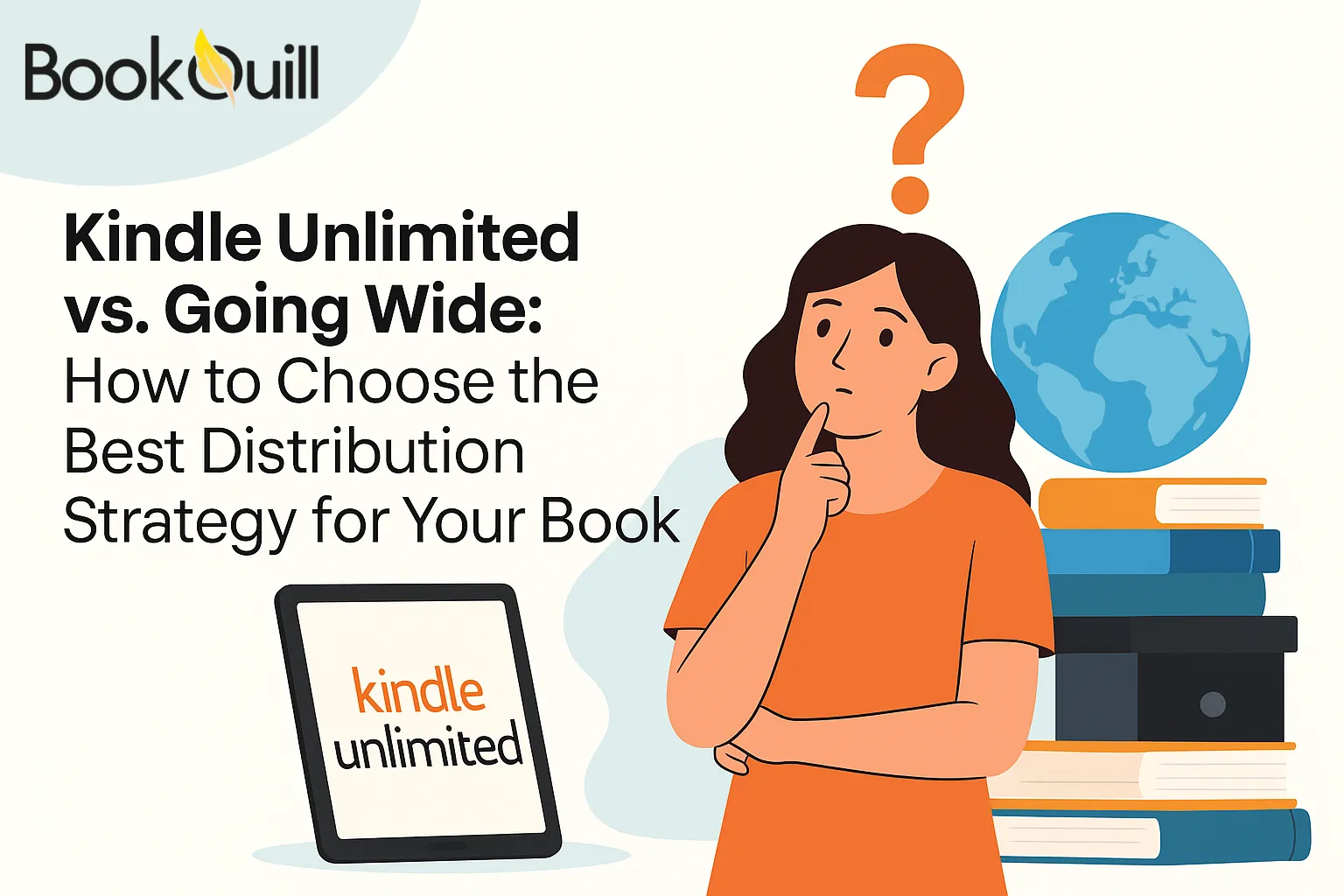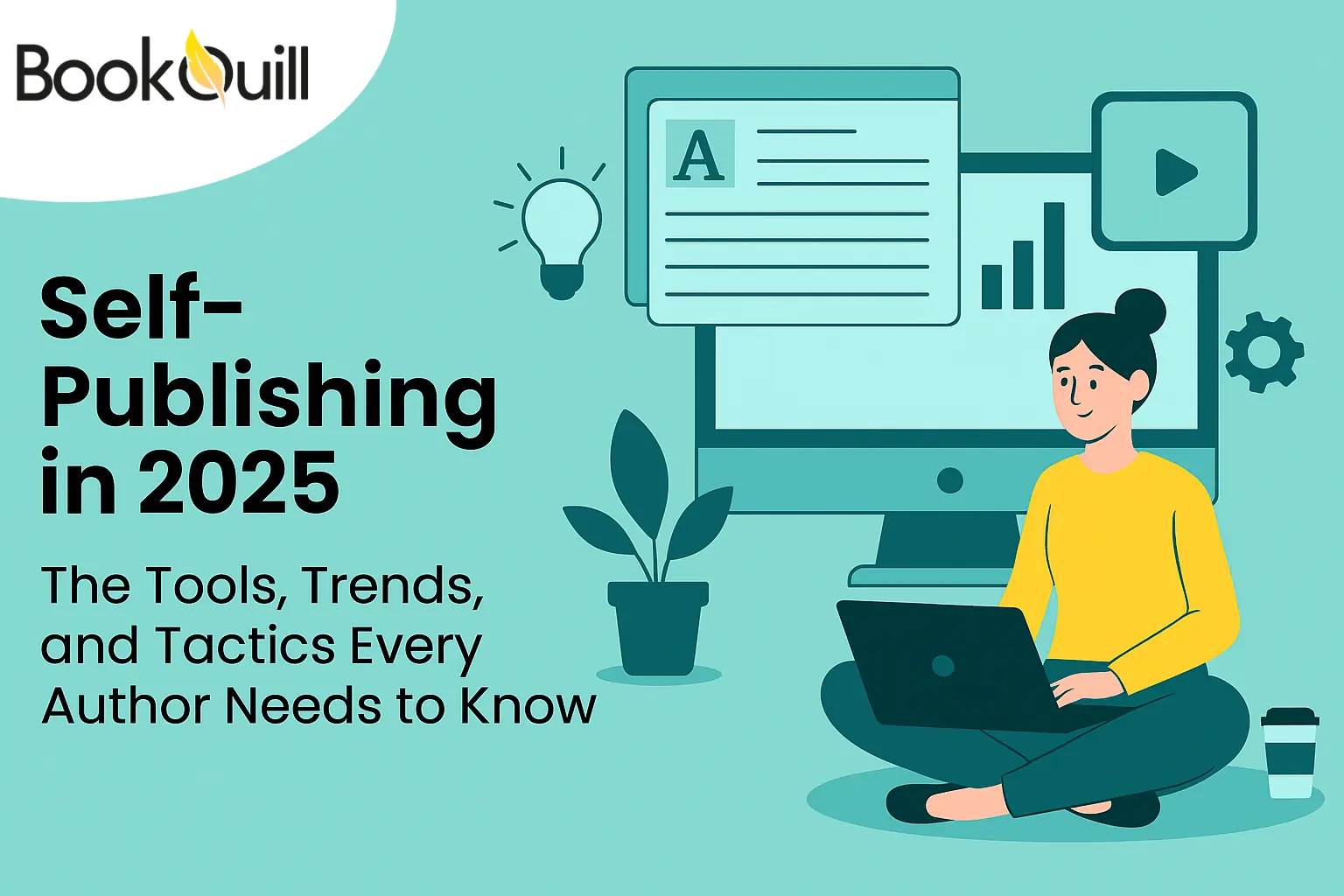Table of Contents
Explore Blogs
Trending on Ebook
How to Translate Your Book without Getting Burned

So, finally, you have finished your book, and now is the time to publish it. You are promoting, gaining traction… but only in one language. Meanwhile, readers across the world are hungry for your story, and you are not reaching them. This is the smartest move you might be avoiding in the world of international publishing.
The global book market isn’t just massive, it’s multiplying. Countries like Germany, Brazil, Japan, and India have thriving literary audiences. Spanish and Chinese are two of the most widely spoken languages in the world. Now, imagine your book brought to life in a different language. That’s a next-level opportunity!
And yes, self-published authors are winning at this. The catch? It’s got to be done right.
Many authors search for how to translate a book and end up overwhelmed. But if you want to connect with new markets, you can’t settle for low-effort solutions. This is a serious professional move, and it demands professional support.
And here’s where quality editing can help you. Without it, even a great translation can fall flat. Without it, it might be technically done, but nobody’s coming back for more. And you don’t want that, right?
So, if you are planning to publish your book in different languages, or you are just exploring the idea, this guide will walk you through how to do it the smart way without getting burned.
Key Takeaways
- Translating Your Book: Translating opens doors to international publishing opportunities, but success depends on more than just language. Voice, tone, and cultural nuance matter just as much.
- Getting Burned During Book Translation Is Real: “Getting burned” means getting taken advantage of, wasting money, and damaging your reputation.
- Hiring a Literary Translator: You will need affordable book editing services to localize, refine, and ensure that your translated book really captures the audience.
- AI Translation Tools Can’t Replace Humans: Human insights are irreplaceable, especially when it comes to narrative flow, emotion, and reader expectations.
- To Translate A Book Successfully: Follow a strategic, step-by-step approach, protecting your rights, and investing in the best book editing services for long-term global impact.
What ‘Getting Burned’ Really Looks Like and How to Avoid It
Let’s first discuss what “Getting burned” actually means. If you think it just means spending more than you planned, you are underestimating the damage.
Getting burned in the translation world can take many shapes:
- Financial Loss: You hire a “translator” off a gig site for $200 and receive a document for which you will need coffee, context, and a spiritual guide to make sense of it.
- Brand Damage: Your book becomes the punchline in a Reddit thread for its bizarre phrases or offensive mistranslations.
- Rights Nightmares: You sign away foreign rights forever… and realize it too late.
- Time Sink: You spend months fixing a mess instead of launching your book in a new market.
That’s what happens when authors skip the due diligence. Or when they rely on AI translation tools without human oversight. Or when they translate a book without involving any kind of professional assistance.
Let’s say your thriller novel gets translated into French. But the pacing changes, the idioms fall flat, and it all just doesn’t make sense. What could have been an incredible crime novel turns into sluggish storytelling. A professional book editing service with bilingual or native-level fluency would’ve caught those shifts in tone and tightened everything up.
That’s what most authors don’t realize: editing after translation is not optional. It’s important, in fact, quite necessary. And yet, many services skip this step entirely or charge you extra for it.
And that’s how you get burned. But with the right team, that risky translation becomes an international success.
Hidden Traps That Sink Authors Trying to Go Global
Sure, it’s creative, but translating a book is also a smart business play. And like any business move, it’s loaded with unseen challenges that can quietly sabotage your project.
1. Bad Translators
Beware of translators who charge suspiciously low rates, offer zero samples, or can’t explain the differences between literary and technical translation. Also, your translator must understand nuance, voice, rhythm, and reader expectations.
2. Rights & Royalties Trouble
Some translators or agencies will sneak clauses into contracts that give them long-term rights, royalty percentages, or distribution power. Before you sign anything, consult someone who understands intellectual property in publishing. And yes, many professional book editing services offer rights consultation as part of the editorial process.
3. The Agency Black Hole
Many translation agencies operate more as brokers than true partners. They take your money, outsource to whoever’s available, and disappear. You’re left with no contact, no accountability, and no guarantee of quality. These are the authors who email us asking if our editors can “fix” their translation after the fact.
4. Skipping the Editor
A translator is not an editor. Editors don’t just fix typos; they smooth the voice, ensure cultural sensitivity, and adapt tone. If your translated book hasn’t been seen by an expert book editing service, it’s vulnerable to embarrassing issues you won’t even notice… until readers point them out.
5. Wrong Reader, Wrong Market
Will you be marketing your Spanish translation in Spain? When is it written in Latin American Spanish? Huge mistake. Same with genre misfires, selling sci-fi without adjusting references, or using humor that doesn’t land cross-culturally. This is the kind of stuff a good editor won’t let slip through.
Getting past these traps takes awareness, vetting, and, yes, a good editor.
What Professional Translation Should Actually Look Like?
So, what should a book translation look like when it’s done right?
The best translations are invisible. The reader forgets they are reading a translated book at all. The pacing, tone, humor, idioms, and emotional resonance feel native to their language. That’s the gold standard, and it doesn’t happen by accident.
It starts with choosing a literary translator, not just a bilingual person. Just because someone can read music doesn’t mean they can write a hit, right? The same applies here. Literary translators specialize in storytelling, pacing, dialogue, and nuance. They understand your genre, your voice, and the expectations of international readers.
But even the best translator benefits from a second set of eyes. And those are professional book editing services.
Once the manuscript is translated, a native-speaking editor ensures:
- The tone is culturally appropriate.
- The humor makes sense.
- The pacing matches reader expectations in that region.
- There are no grammatical or contextual mistakes.
And trust me, it all matters. It’s the difference between being respected in a new market… and being rejected. Many authors find their translated books falling flat, not because of the translator’s failure, but because they skipped the editing phase altogether.
If you’re aiming to translate your book, you need both pillars, and that is, expert translation and top-tier editing. Without both, the whole structure falls apart.
And if you’re working with one of the best book editing services, you’ll also get input on voice retention, market fit, reader experience, and everything your story deserves, in any language.
How to Translate a Book without Getting Burned (Step-by-Step Guide)
This is the part most authors crave. If you are wondering how to translate your book safely and professionally, this guide will surely help you.
Step 1: Vet Your Translator
Ask for literary samples. If possible, request a sample chapter translation. Check for membership in organizations like the American Translators Association (ATA). And always choose someone who understands your genre, not just the language.
Step 2: Lock in a Clear Contract
Your contract should define scope, delivery timeline, revision rounds, and most importantly, who owns the final product. Many authors get burned here by accidentally giving away foreign rights. So, protect your IP at all costs!
Step 3: Involve a Native Editor
After translation, hire an affordable book editing service with native language fluency to do a developmental edit and a polish pass. Even great translators miss things. Editors catch them and elevate your book to a publish-ready standard.
Step 4: Prove it like a Pro
Proofreading is not a luxury; it’s a necessity. Minor grammar slips or cultural mistakes can ruin credibility. If you’re aiming for a refined product, don’t stop short of this final step.
Step 5: Localize, Don’t Just Translate
Localization is what makes your book feel like it was written for that reader. Adjust idioms, references, settings, and jokes. A good editing service will help with this, modifying your manuscript to the intended market without losing your voice.
If you’re wondering how other authors manage to publish their books in different languages without disaster stories, it’s because they follow this map. And they have an editing partner who gets it.
What NOT to Do When Translating Your Book
Now, let’s flip the script for a moment. What are the biggest translation mistakes authors make? Here’s a list of them. Avoid these missteps at all costs.
1. Don’t Rely on AI Alone
Sure, tools like Google Translate have come a long way. But they still butcher humor and emotion. No matter how impressive AI seems, it lacks human judgment. Use it as a support tool at best, not the whole operation.
2. Don’t Skip the Editing Phase
We’ve said it before, but it’s worth repeating, “Translation is step one, not the finish line.” A translator doesn’t refine structure, adjust pacing, or ensure emotional tone. If your book hasn’t been through professional book editing services, you are not ready to publish it internationally.
3. Don’t Sign Without Reading the Fine Print
If a translator or agency asks for a share of royalties or tries to retain publishing rights, that’s a clear red flag. You need clear ownership of your work across all languages.
4. Language Doesn’t Guarantee Market Success
Just because your book is in Spanish doesn’t mean it’s fit for both Spain and Mexico. Regional differences matter. Localization matters. An editor familiar with these nuances can protect your reputation and your book’s readability.
Too many authors try to translate a book and rush it into release, hoping it’ll sell itself. Instead, they get bad reviews, lose readers, and suffer irreparable brand damage.
Translation is an investment. So, better to make it count, with the right experts, the right approach, and editing that improves your work!
Translation Nightmares and What They Could’ve Avoided
We all love a good success story, but the cautionary tales? They are the ones who really teach us something.
Let’s start with Author A. They wrote a compelling sci-fi thriller and hired a translator from a freelancer platform for $150. Weeks later, their book was published in German. Unfortunately, the translation was riddled with robotic dialogue and idioms that made no cultural sense. German readers mocked it on social media. Reviews were brutal. And their book became a meme.
Then there’s Author B. They paid for a Spanish translation, but didn’t realize it was European Spanish, not Latin American. Their romance novel, marketed in Mexico, fell flat because regional nuances were completely off. It wasn’t offensive, it just didn’t connect. Had they worked with an affordable professional editing service, they would’ve caught the tone mismatch and avoided wasting months of promotion.
And let’s not forget Author C, who was so excited to translate their book that they skimmed the contract and signed away worldwide royalties for all non-English editions… indefinitely. They didn’t read the fine print until it was too late.
What’s common in all these nightmares? Rushing the process. Skipping quality control. Ignoring professional help, especially from experienced book editing services that know how to handle translated manuscripts with care.
Why Editing Is Non-Negotiable After Translation
If you take nothing else from this guide, let it be this: book editing is not optional after translation; it’s necessary.
Here’s why.
Even the best translator in the world is still human. They make choices about structure, rhythm, and cultural substitutions. Sometimes, they misinterpret a metaphor. Other times, they oversimplify complex emotions.
Now multiply that by an entire novel. Think about the subtlety in your prose, the humor, sarcasm, and pacing. Are you confident that all of that carried over exactly? If not, you need an editor who speaks the language and understands literary flow.
This is where professional book editing services step in. Not only do they clean up grammar and word flow, but they also ensure:
- Consistency of tone and character voice.
- Removal of awkward or jarring phrases.
- Clarification of cultural references.
- Alignment with your original vision.
What’s at stake if you skip this step? Poor reviews. Dull reception. Reader confusion. Lost opportunities in emerging markets.
To summarize, translation gets you close, and editing takes you all the way. And we’re not talking about high agency rates. Many affordable book editing services offer packages to authors dealing with translated manuscripts.
Which Languages Should You Translate Into First?
Choosing where to start is both strategic and genre-specific. Some authors translate their books based on personal preference, but a smarter approach is market-focused.
It’s better to consider these factors first:
- Market Size: Spanish, German, French, and Chinese are among the largest reading markets globally.
- Amazon Regional Stores: KDP now operates in multiple languages, and certain genres do especially well in specific markets.
- Competition vs. Demand: Emerging countries often have hungry readers but less competition, which is great for indie authors.
Here are some genre-driven tips that you can use:
- Romance? Germany and Brazil have passionate and engaged romance audiences.
- Fantasy & Sci-Fi? France and Poland are highly literate markets with massive fan bases.
- Self-help or Non-fiction? Consider India, Japan, and the Netherlands.
The important thing here is not just which language you use but how you adapt your book to it. Cultural sensitivity, regional phrasing, and genre expectations can vary widely even within a language. For example, Spanish spoken in Argentina differs from Spanish, not just in accent, but in vocabulary and tone.
That’s where a book editing service adds value. A good editor will not only refine the language but also guide you in shaping the content for its specific target audience.
Here’s a tip! Start with one language. Track performance. Learn what worked. Then scale.
Translating your book can open doors to international publishing success, but only if you choose the right ones.
How Much Should You Expect to Pay? And Why Cheap Can Hurt You Bad
Let’s talk numbers, because this is where many authors get “burned.”
On average, professional translation costs range from $0.08 to $0.28 per word, depending on the language and subject matter. That puts a 60,000-word novel somewhere between $4,800 and $12,000.
But what are you actually getting?
Cheap translation often means:
- Non-native speakers
- No literary training
- No editing pass
- No cultural adaptation
That’s like skipping the essentials.
What is the real cost of a bad translation? Paying again for an editor to fix it, sometimes at a higher rate than if you’d done it right the first time. Or worse, launching the book, getting criticized in reviews, and having to pull the product entirely.
Now, compare that to working with affordable book editing services. These services can review the translation for tone, structure, and flow, without redoing the entire manuscript. That saves time, money, and sanity.
Better yet, many professional services offer bundled packages or payment plans, especially for new authors. So you don’t have to choose between quality and budget.
To Wrap Up
You have worked hard to write your book. Don’t let that effort lose its impact on translation. Whether you’re just curious about how to translate a book or already knee-deep in the process, know this:
Your voice is worth preserving! Across borders, across languages, across cultures.
International publishing isn’t just about exposure. It’s about connection. You’re offering your story to a new audience. They deserve to experience it as you intended, not as a broken echo.
That’s why it’s not enough to simply translate a book. You need a team that understands tone, culture, pacing, and reader psychology. A team that respects your vision and improves it.
That’s where the right editor makes all the difference.
So if you’re ready to share your story with the world, do it wisely. Get the translation. Then get it refined. Make your international release something you’re proud of.
And if you need a trusted partner to guide your book across that last mile, well, you know where to find us.
Frequently Asked Questions
What’s The Best Way to Translate a Book without Losing My Writing Style?
To preserve your voice, work with a literary translator and follow up with professional book editing services that specialize in tone and style across languages.
Do I Still Need Editing After Translating My Book?
Yes, editing is non-negotiable. Even great translations benefit from professional editing services to catch inconsistencies, cultural errors, and tone shifts.
How Do I Choose Which Language to Translate My Book into First?
Start with a market that aligns with your genre. For effective international publishing, choose languages with high demand and use editing services to localize your book in different languages.
Can AI Tools Like Google Translate Be Used to Translate a Book?
AI tools can assist, but they often miss context and emotion. Always have your translation reviewed by affordable book editing services to ensure quality.
How Much Does It Cost to Translate and Edit a Book Professionally?
Translation costs vary, but pairing it with affordable editing services ensures your investment pays off with a market-ready book.
What Are the Risks of Translating My Book Without a Contract?
Without a clear agreement, you could lose control of your rights or royalties. A contract protects your work and should be reviewed by professionals for a secure translation process.
Is Translating My Book Really Worth It as A Self-Published Author?
Yes, but only when done right, it expands your reach and income. Just make sure you use trusted translators and the best book editing services to avoid costly mistakes.
What’s The Difference between Translation and Localization?
Translation changes the words, whereas localization adapts the meaning, tone, and cultural references. A book needs both, and editors ensure your story fits the new market.
Can I Market My Translated Book Without Editing It?
You can, but you shouldn’t. Poor translations hurt your brand. Rely on affordable book editing services to refine your manuscript before promoting it to international readers.
How Long Does It Take to Translate and Edit a Book?
Timelines vary, but expect several weeks to months depending on the language, word count, and quality of service.
About Author
Hi My name is Micheal Adams, When I am not watching horror movies and helping my kids with homework or reading my favorite fantasy/supernatural novels – I’m writing to guide aspiring authors. I focus on exploring and simplifying both the technical aspects and the often-overlooked details of book writing and publishing so I can empower new writers to climb the Amazon bestseller list and connect with more readers.




